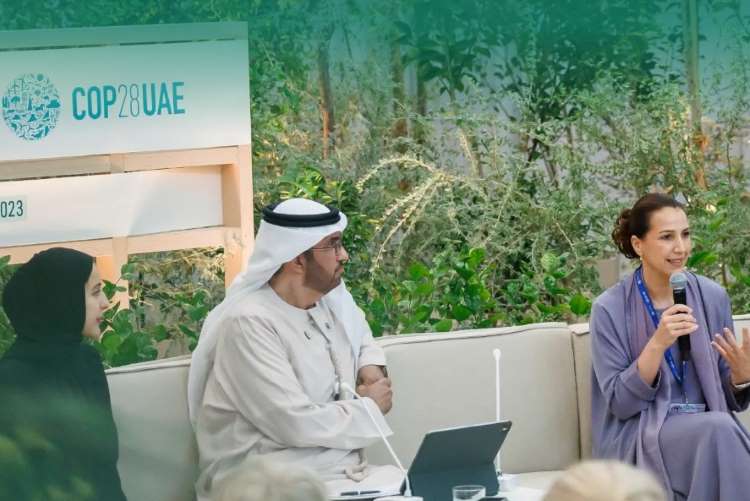
The United Arab Emirates hosting COP28 in Dubai, a city synonymous with luxury and fossil fuel wealth, has sparked a global debate. The irony is palpable. The head of the UAE’s national oil company spearheading a conference dedicated to climate change mitigation. This paradoxical choice highlights the UAE’s ambition to be a global influencer in climate policy.
The Gulf nation’s commitment of $30 billion to assist the Global South in transitioning to clean energy is a significant gesture, but it is viewed with scepticism. The UAE’s role as a major oil producer and a proponent of renewable energy is symptomatic of the broader global challenge in transitioning away from fossil fuels.
Global urgency meets political realities
António Guterres’ warning of being “minutes to midnight” in averting climate catastrophe underscores the urgency of COP28. The conference arrives at a critical juncture, with global temperatures perilously close to breaching the 1.5 degrees Celsius threshold set in Paris. The absence of key leaders like President Biden and Xi Jinping, however, reflects the complex geopolitical landscape that continues to hinder unified global action.
The summit’s agenda is ambitious, focusing on phasing out fossil fuels and ramping up renewable energy. However, progress in these areas has been slow and uneven. The dual necessity of reducing emissions and adapting to already manifesting climate impacts presents a daunting challenge, especially for the most vulnerable nations.
READ I EXPLAINED: COP28’s Loss and Damage Fund is a step towards climate justice
The challenge of financing climate action
One of the starkest realities facing COP28 is the funds shortfall in supporting developing countries’ adaptation to climate change. The decline in climate adaptation aid, particularly from wealthy nations, is alarming. The reduced contribution of the US in adaptation aid is a case in point, underscoring the gap between commitments made in international forums and actual financial support.
The financial gap has severe implications for developing nations, which face the brunt of climate impacts. The stark difference between the needed billions and the actual funds committed is a reminder of the immense work ahead. The new Loss and Damage fund, while a step in the right direction, needs innovative financing mechanisms to meet the scale of required investment.
COP28 – Renewed hope amid cynicism
Despite the prevailing cynicism, particularly around the UAE’s role and the slow pace of global negotiations, there are glimmers of hope. Recent agreements between the US and China to accelerate renewable energy efforts, albeit without detailed commitments, signal a willingness to find common ground. The acknowledgment by countries like the UAE of the need to transition to renewable energy, while still meeting current fossil fuel demands, reflects the complex but necessary balance that must be struck.
John Kerry’s emphasis on the role of individual countries in bending the emission curves highlights an essential truth. While COP28 can set the direction, real change requires concerted action at national levels.
COP28 is much more than just another international meeting. It is a critical juncture in the global response to climate change. The discussions around the global stocktake, loss and damage, fossil fuel phase-out, and climate finance are not just agenda items but are pivotal to the future trajectory of global climate action.
UAE’s commitment under scrutiny
The world watches as leaders deliberate in Dubai, a city symbolising both the challenges and potential of our time. The question remains: will COP28 be a turning point towards decisive action, or another missed opportunity in the fight against climate change? The answer lies not just in the conference halls of Dubai but in the actions and commitments of nations worldwide in the aftermath of COP28.
The UAE’s commitment to clean energy must be examined alongside its continued reliance on fossil fuels. Concerns around greenwashing and lack of transparency necessitate stronger corporate accountability mechanisms. Mandatory carbon reporting and stricter environmental regulations are crucial to ensure genuine emissions reductions and prevent companies from using climate action as a marketing ploy. COP28 must create a platform for open dialogue about greenwashing and establish clear standards for measuring and verifying corporate climate commitments.
While COP28 highlights the urgency of climate action, the gravity of the situation demands more than just words. Sharing concrete data and scientific projections on rising sea levels, extreme weather events, and their impact on food security and migration patterns will paint a clearer picture of the dire consequences of inaction. Additionally, COP28 must translate pledges and commitments into measurable and time-bound actions, ensuring transparency and accountability in achieving climate goals.
The absence of key leaders at COP28 underscores the complex geopolitical landscape that hinders global climate action. However, COP28 must serve as a platform to bridge these divides and foster greater international cooperation. Multilateral institutions like the UN can play a crucial role in facilitating dialogue, coordinating efforts, and promoting the sharing of best practices. By working together, nations can overcome individual challenges and accelerate collective progress towards a sustainable future.
